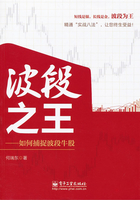[22] "The Ancient Régime," p. 354. (Laff. I. p. 263.)[23] Necker, "De l'administration des finances," I., 164, and "Rapport aux états-généraux," May 5th, 1789. (We arrive at these figures, 179millions, by combining these documents, on both sides, with the observation that the 3rd vingtième is suppressed in 1789.)[24] Charles Nicolas, "les Budgets de la France depuis le commencement du XIXème siècle" (in tabular form). - De Foville, ibid., 356.--In the year IX, the sum-total of direct taxes is 308 millions; in the year XI. 360, and in the year XII, 376. The total income from real-estate in France towards 1800 is 1,500 millions.
[25] It is only after 1816 that the total of each of the four direct taxes can be got at (land, individual, personal, doors and windows).
In 1821, the land-tax amounts to 265 millions, and the three others together to 67 millions. Taking the sum of 1,580 millions, estimated by the government as the net revenue at this date in France, we find that, out of this revenue, 16.77 % is deducted for land, and that, with the other three, it then abstracts from the same revenue 21 % -On the contrary, before 1789, the five corresponding direct taxes, added to tithes and feudal privileges, abstracted 81.71 % from the net income of the taxable party. (Cf. "The Ancient Régime," pp.346, 347, 351 et seq. Laff. I. pp. 258, 259, 261 and following pages. )[26] These figures are capital, and measure the distance which separates the old from the new condition of the laboring and poor class, especially in the rural districts; hence the tenacious sentiments and judgments of the people with respect to the Ancient Régime, the Revolution and the Empire. - All local information converges in this sense. I have verified the above figures as well as I could: 1st, by the "Statistiques des préfets," of the year IX and year XIII and afterwards (printed); 2nd, by the reports of the councillors of state on mission during the year IX (published by Rocquam, and in manuscript in the Archives nationales); 3rd, by the reports of the senators on their sénatories and by the prefects on their departments, in 1806, 1809, 1812, 1814 and 1815, and from 1818to 1823 (in manuscript in the Archives nationales); 4th, by the observations of foreigners travelling in France from 1802 to 1815. -For example ("A Tour through several of the Middle and Western Departments of France," 1802, p.23): "There are no tithes, no church taxes, no taxation of the poor. . . . All the taxes together do not go beyond one-sixth of a man's rent-roll, that is to say, three shillings and sixpence on the pound sterling." - ("Travels in the South of France, 1807 and 1808," by Lieutenant-Colonel Pinkney, citizen of the United States, p.162.) At Tours a two-story house, with six or eight windows on the front, a stable, carriagehouse, garden and orchard, rents at ā20 sterling per annum, with the taxes which are from ā1,10, to ā2, for the state and about ten shillings for the commune. -("Notes on a Journey through July, August and September, 1814," by Morris Birkbeck, p.23.) Near Cosne (Orléanais), an estate of 1,000acres of tillable land and 500 acres of woods is rented for nine years, for about 9,000 francs a year, together with the taxes, about 1,600 francs more. - (Ibid., p.91.) "Visited the Brie. Well cultivated on the old system of wheat, oats and fallow. Average rent 16 francs the acre with taxes, which are about one-fifth of the rent." -Roederer, III., 474 (on the sénatorerie of Caen, Dec.. 1, 1803): "The direct tax is here in very moderate proportion to the income, it being paid without much inconvenience. - The travellers above quoted and many others are unanimous in stating the new prosperity of the peasant, the cultivation of the entire soil and the abundance and cheapness of provisions. (Morris Birkbeck, p.11.) "Everybody assures me that the riches and comfort of the cultivators of the soil have been doubled since twenty-five years." (Ibid., p.43, at Tournon-sur-le-Rh?ne.) "I had no conception of a country so entirely cultivated as we have found from Dieppe to this place." - (Ibid., P.51,, at Montpellier.) "From Dieppe to this place we have not seen among the laboring people one such famished, worn-out, wretched figure as may be met in every parish of England, I had almost said on almost every farm. . . . A really rich country, and yet there are few rich individuals." - Robert, " De l'Influence de la révolution sur la population, 1802," p.41. "Since the Revolution I have noticed in the little village of Sainte-Tulle that the consumption of meat has doubled; the peasants who formerly lived on salt pork and ate beef only at Easter and at Christmas, frequently enjoy a pot-à-feu during the week, and have given up rye-bread for wheat-bread."[27] The sum of 1 fr. 15 for a day's manual labor is an average, derived from the statistics furnished by the prefects of the year IXto the year XIII, especially for Charente, Deux-Sèvres, Meurthe, Moselle and Doubs.
[28] "The Ancient Régime." p. 353. (Laff. I. p. 262).
[29] Arthur Young, II., 259. (Average rate for a day's work throughout France in 1789.)[30] About 15 millions out of 26 millions, in the opinion of Mallet-Dupan and other observers. - Towards the middle of the 18th century, in a population estimated at 20 millions, Voltaire reckons that "many inhabitants possess only the value of 10 crowns rental, that others have only 4 or 5, and that more than 6 millions of inhabitants have nothing." ("L'homme aux quarante écus.")- A little later, Chamfort (I., 178) adds: "It is an incontestable truth that, in France, 7millions of men beg, and 12 millions of men are incapable of giving anything."[31] Law of Floréal 3, year X, title II, articles 13, 14, § 3 and 4.















